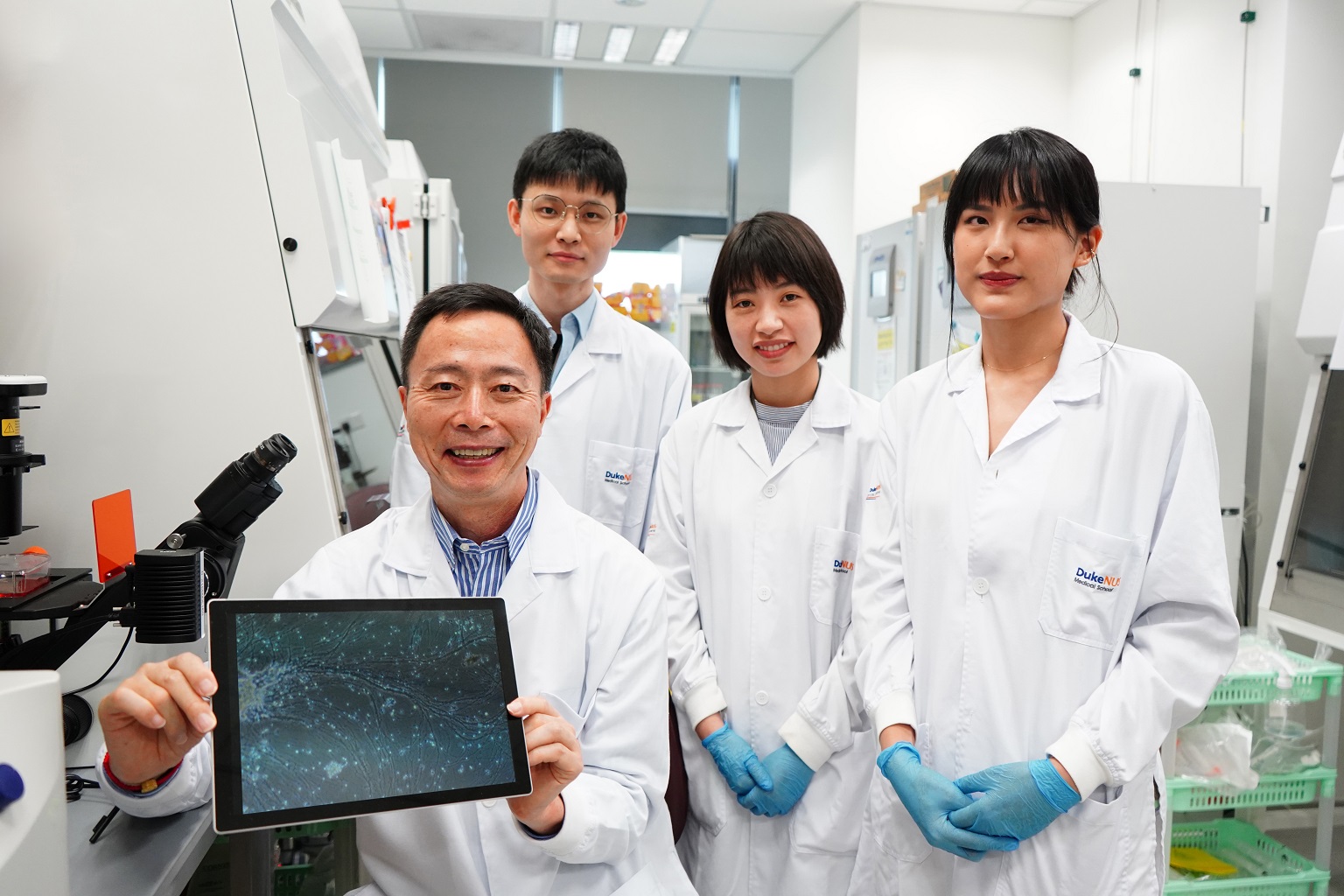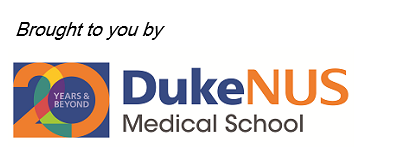In March, scientists at Duke-NUS Medical School announced they had identified a gene that is responsible for regulating energy supply to cells that drive kidney failure. The science may be quite technical for many of us, but it is a discovery that could result in new treatments to delay the progression of kidney disease.
Millions of people suffer from the disease worldwide, including 500,000 people in Singapore.
This latest scientific discovery is one of many the graduate medical school has achieved – its researchers and clinician-scientists are tackling major health issues and diseases, from kidney disease and cancer, to Alzheimer’s and dengue.
To continuously contribute to furthering science and improving healthcare, Duke-NUS sets up its researchers for success with a whole-organisation approach to excellence. The school was ranked one of the top 250 employers this year, in a list by global research firm Statista in collaboration with The Straits Times.
“In essence, Duke-NUS stands out as a nurturing environment where employees are valued, supported and encouraged to excel, fostering a community where everyone can thrive,” says Professor Lok Shee Mei, provost’s chair and deputy director of the Emerging Infectious Diseases programme at Duke-NUS.
Driving research excellence
Prof Lok knows what it takes to lead a successful scientific research team. Fuelled by a desire to better understand the immune system and help humans overcome viruses, she and her team have made significant discoveries that contribute to the ongoing development of vaccines and treatments for dengue and Zika.
With the school’s support, she has become a global leader in the field of structural flavivirology – examining specific viruses’ shapes to understand and combat diseases – and a well-respected academic in cryo-electron microscopy. She credits these successes to Duke-NUS’ understanding of what it takes to conduct research efficiently.
In 2009, when Prof Lok joined Duke-NUS after doing post-doctoral research at Purdue University in the US, she told the school that a cryo-electron microscope “was absolutely crucial” for her dengue research. However, no one in Singapore knew how to operate such an advanced instrument then.
Recognising the potential in Prof Lok’s research for developing dengue treatments, Duke-NUS responded by sending her and her team to a three-month training stint at Baylor College of Medicine in the US the following year, where they learnt to use a new type of cryo-electron microscope.
Prof Lok, who has played an instrumental role in setting up and upgrading cryo-electron microscopy capabilities in Singapore, says: “The school is acutely aware of the need to support researchers with the latest cutting-edge technology to facilitate groundbreaking research.”
And it is research achievements, like Prof Lok’s breakthroughs in solving the structures of dengue and Zika viruses, that attract critical funding from public and private donors in the form of grants and philanthropy, thus ensuring the continuity of such impactful research.
Providing specialised support for research
In order to help scientists like Prof Lok focus on the science, Duke-NUS provides departments with secretarial support and a business manager who handles the administrative demands of research such as applying for grants.
There is also a dedicated team that manages research operations.
Dr Sumita Anant, director and assistant dean of Research Operations, Procurement and Safety, says: “The successful pursuit of research, to a large extent, lies with the individual scientist, provided we give the necessary supporting environment.”
Her staff of 26 does everything from coordinating the procurement, installation, maintenance and training for new equipment in laboratories, to establishing and managing the operations of centralised research facilities that serve the entire institution.

For instance, Dr Anant’s team in the Safety department (Safety, Health, Emergency Management, Research Integrity and Compliance) helps align research activities and personnel with safety and ethical guidelines, such as when their studies involve human participants.
“We also work with hazardous materials such as radioactive substances, chemicals, flammables and so on, all of which have laws governing them,” she explains.
By deftly balancing these moving parts, Dr Anant’s department lays the groundwork for scientists to succeed, even before they set foot into the laboratories.
“The idea is that when they come in, they can start working in a lab; they know who to talk to for budgets, lab set-up, procurement and safety, and we even get their inventory before they move in,” she says.
A biomedical researcher by training, Dr Anant finds it fulfilling to help scientists find good solutions to overcome their research constraints, knowing that what she does contributes to their success.
'Remarkable degree of flexibility'
Duke-NUS’ research success starts even at the pre-doctoral level.
As Singapore’s flagship graduate-entry, research-focused medical school, it runs a Doctor of Medicine-PhD (MD-PhD) programme that combines medical education with research training to nurture clinician-scientists who interface between medicine and science.
Ms Yvonne Yen Yu-Hsin, a graduate from Johns Hopkins University in the US, is in her sixth year of the MD-PhD programme, dedicating her time and efforts to pursuing her dream of becoming a medical doctor and neuroscientist.
While her programme has separate MD and PhD tracks, Ms Yen has found “a remarkable degree of flexibility” in her studies. For example, she could access clinics and attend surgical procedures during her PhD years.
“This has empowered me to adeptly manage the rigorous demands of concurrently pursuing a medical degree and a PhD without compromising the integrity of either,” she says.
Even before graduating, Ms Yen has played a part in Duke-NUS’ newly established GK Goh Centre for Neuroscience that achieved a major breakthrough in reversing the damage caused by stroke and degenerative diseases such as Alzheimer's and Parkinson's. The research project was led by Professor Zhang Suchun, director of the Neuroscience and Behavioural Disorders programme at Duke-NUS.

As her supervisor, Ms Yen says Prof Zhang not only gives her the autonomy to pursue her own research in Alzheimer’s disease but also provides the support she needs.
She adds: “This integrative and supportive framework is pivotal in my progression as a researcher and healthcare professional.”
By fostering a whole-organisation approach to excellence, innovation and collaboration, Duke-NUS positions its employees to succeed in their respective roles.
Professor Thomas Coffman, dean of Duke-NUS, says: “At Duke-NUS, we believe that when people are truly valued and supported, they can achieve remarkable things. That’s why we are dedicated to fostering an ecosystem where our staff have access to cutting-edge resources, funding from grants and philanthropy and abundant opportunities for collaboration.
“By prioritising the well-being of our team and providing them with the right tools and support, we empower them to push the boundaries of knowledge and make groundbreaking discoveries that have a profound impact on healthcare and beyond,” he adds.
Duke-NUS researchers can also leverage the institution’s local and global partnerships to conduct cutting-edge collaborations that bridge gaps between basic scientists and clinicians, translating results from research into innovations that benefit patients worldwide.
These efforts contribute to the institution’s vision of transforming medicine and improving lives. As Prof Lok puts it: “In the end, the research should translate to gains in society.”
Dean Coffman adds: “It has been an incredible journey for Duke-NUS for the past nearly two decades, and I’m confident that Duke-NUS will continue to shape the future.”


